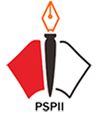Improving Academic Achievement on Congregational Prayer Through Demonstration Method in Junior High Students
DOI:
https://doi.org/10.15575/jkgk.v2i1.914Keywords:
Learning Achievements, Methods, PrayerAbstract
This study aims to improve student learning outcomes in Fiqh subjects through the application of the demonstration method, namely by demonstrating the process or situation being studied so that students get a more meaningful learning experience. This study uses a Classroom Action Research (PTK) approach with the subject of 37 students in grade VII B MTs Ibadurrohman, Rancaekek District, Bandung Regency and is carried out in two cycles that include the stages of planning, implementation, observation, and reflection. The hypothesis proposed is that the demonstration method can effectively improve student learning achievement, with a target of at least 70% of students achieving a score above KKM 70. However, this study found several obstacles, such as the limitations of teachers' skills in using the method, differences in students' academic abilities, and time constraints that are influenced by a large number of students. Through observation and data analysis, this research is expected to contribute to improving the quality of Fiqh learning and offer practical recommendations to overcome existing challenges.
References
Abdurrahman, M., Nurbayan, Y., Tantowi, Y. A., & Nurlatifah, N. (2024). THE Penguatan Kompetensi Guru dalam Pengajaran Al-Quran melalui Metode Iqro’Berbasis Media Kartu dan Praktik Ibadah melalui Metode Demonstrasi Partisipatif di Yayasan Asy-Syifa Banjar: Pengabdian Masyarakat-Pendidikan Agama Islam-Al-Quran dan Ibadah. Al-Ijtimā: Jurnal Pengabdian Kepada Masyarakat, 5(1), 142–160.
Baharudin, H. H., Masnan, A. H., & Zain, A. (2021). Learning Module Development using Android Technology Application based on Interactive White Board on Preschool Reading Proficiency: Theoretical framework review: Pembangunan Modul Pembelajaran menggunakan Aplikasi Teknologi Android berasaskan Papan Putih . Jurnal Pendidikan Bitara UPSI, 14(1), 1–14.
Chanfiudin, C., Lukman, L., Setiawan, R., & Saputra, I. W. (2024). Etika Pendidikan Islam Dalam Konteks Modern. IHSANIKA: Jurnal Pendidikan Agama Islam, 2(3), 1–8.
Chusni, M. M., Andrian, R., Sariyatno, B., Hanifah, D. P., Lubis, R., Fitriani, A., Noviyanto, T. S. H., Herlina, M., Wardani, K. D. K. A., & Parera, M. M. A. E. (2021). Strategi Belajar Inovatif. Pradina Pustaka.
Hasanah, M. N., Putri, N., & Syamsudin, S. (2023). Understanding Learning: Insights into Methodology and Conceptualization by Jean Piaget. Al-Lubab: Jurnal Penelitian Pendidikan Dan Keagamaan Islam, 9(2), 81–93.
Herawati, N. (2022). Penerapan Pembelajaran Berbasis Multiple Intelligence untuk Meningkatkan Keaktifan Belajar siswa Mata Pelajaran Fiqih Pada Kelas Vb MIN 1 Jembrana Bali.
Ikmal, H. (2021). Nalar Humanisme dalam Pendidikan: Belajar dari Ki Hadjar Dewantara dan Paulo Freire. Nawa Litera Publishing.
Indonesia, P. R. (2003). Undang-undang Republik Indonesia nomor 20 tahun 2003 tentang sistem pendidikan nasional. Jakarta: Kementrian Riset, Teknologi, Dan Pendidikan Tinggi.
Khaeroni, K., & Sabri, S. (2022). Implementation of Independent Learning-Independent Campus at the Department Level of Islamic Religious Higher Education. Tarbawi: Jurnal Keilmuan Manajemen Pendidikan, 8(02), 213–226.
Kustandi, C., & Darmawan, D. (2020). Pengembangan Media Pembelajaran: Konsep & Aplikasi Pengembangan Media Pembelajaran bagi Pendidik di Sekolah dan Masyrakat. Prenada media.
Kusumawati, I., Lestari, N. C., Sihombing, C., Purnawanti, F., Soemarsono, D. W. P., Kamadi, L., Latuheru, R. V., & Hanafi, S. (2023). Pengantar Pendidikan. CV Rey Media Grafika.
Mansir, F., & Purnomo, H. (2020). Urgensi pembelajaran fiqih dalam meningkatkan religiusitas siswa madrasah. Jurnal Al-Wijdan, 5(2), 167–179.
Mudhori, B. (2019). Penerapan Metode Demonstrasi dalam Menumbuhkan Keaktifan Siswa pada Pembelajaran Fiqih Kelas X SMA Muhammadiyah 08 Cerme. Universitas Muhammadiyah Gresik.
Nasarudin, N., Rachmawati, D. A., Mappanyompa, M., Eprillison, V., Misrahayu, Y., Halijah, H., Afifa, R. N., Mustari, M., Mutmainah, S., & Selly, O. A. (2024). Pengantar Pendidikan. Yayasan Tri Edukasi Ilmiah.
Novelti, N. (2020). Implementation of the Cooperative Model of Think Pair Share on Writing Exposition Text.
Nur Inayah, U., Muhammad, T., & Syahindra, W. (2023). Studi Tentang Variasi Metode Pembelajaran Pada Mata Pelajaran Fiqih Di MI Muhammadiyah 10 Karang Anyar. Institut Agama Islam Negeri Curup.
Putra, H. P., & Dewantoro, M. H. (2022). Penerapan Teori Multiple Intelligences Howard Gardner dalam Pembelajaran Pendidikan Agama Islam. Madania: Jurnal Ilmu-Ilmu Keislaman, 12(2), 95–113.
Raujan, Z. (2021). Efektivitas Metode Demonstrasi dalam Pembelajaran Fiqih di Era New Normal MTsN Meukek Kabupaten Aceh Selatan. UIN AR-RANIRY.
Rosidin, R. (2014). Optimalisasi Pembelajaran Berbasis Pengalaman (Experiential Learning). El-Qudwah, 241669.
Siahaan, D. H. S. W., Saparso, S., Muwarni, E. D., & Prasasti, S. (2024). Creative Learning Methods to Increase Class Participation and Problem Solving Skills of Students in Global Perspectives Subjects in Grade IX (Nine) SMP SPK Samarinda. International Journal of Teaching and Learning, 2(2), 335–353.
Silalahi, R. M. (2019). Understanding Vygotsky’s zone of proximal development for learning. Polyglot: Jurnal Ilmiah, 15(2), 169–186.
Simorangkir, M. R. R. (2022). Pendidikan Dalam Perspektif Gender Dan Hak Asasi Manusia. Unj Press.
Sitorus, M. (2012). Perkembangan peserta didik.
Wibowo, H. (2020). Pengantar Teori-Teori Belajar dan Model-Model Pembelajaran. Puri Cipta Media.
Downloads
Published
How to Cite
Issue
Section
License
Copyright (c) 2024 Authors

This work is licensed under a Creative Commons Attribution-ShareAlike 4.0 International License.




